Highland Council finances 'hit hardest' by Covid crisis
- Published
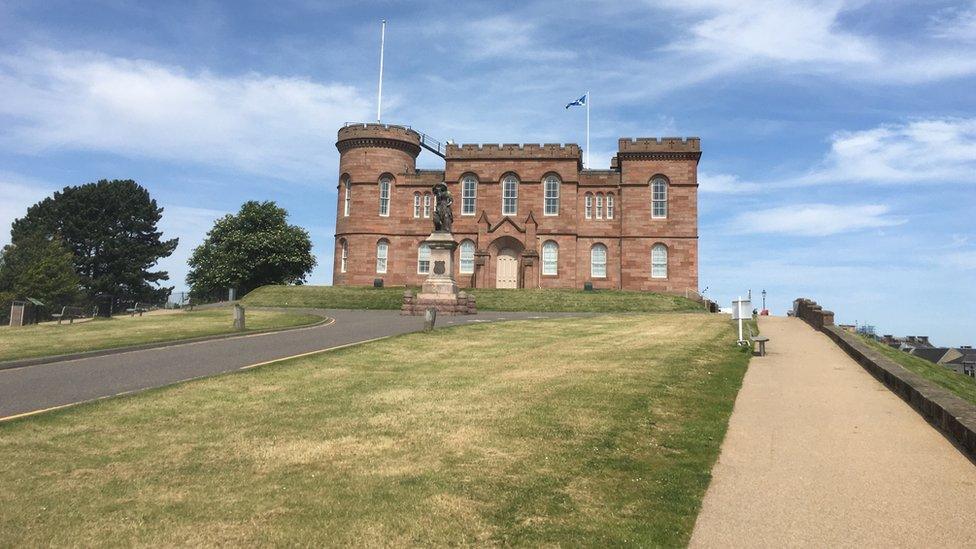
In Inverness a car park that would normally earn Highland Council £200,000-a-month made just £75 in April
Covid-19 has cost Highland Council more per head of population than any other UK local authority, according to BBC research.
The cost of the infection to the council could run to £96.9m, the fourth worst in the UK.
But the estimated shortfall at the council is the equivalent of £411 for every resident - the highest UK figure.
Aberdeen is next with its potential worst-case shortfall of £82m the equivalent of £359 per resident.
Perth and Kinross comes third, according to this measure, with its estimated potential shortfall of £50m the equivalent of £329 for every resident.
The Scottish government said it had taken "exceptional measures" in every area of government to deal with the challenges of Covid-19.
To date, Scottish councils have received £405m in advanced payments this financial year, and the government said by the end of July this will have risen to £455m.
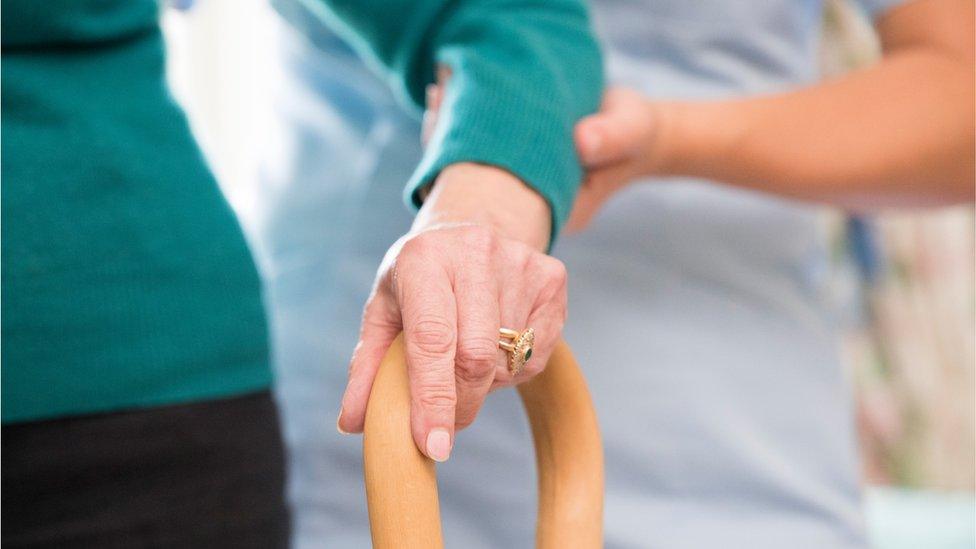
Highland Council has spent an extra £40m caring for an ageing population
Highland's potential £96.9m gap is the fourth worst-case shortfall in the UK, after Birmingham, Essex and Manchester.
Having the highest proportion of furloughed staff in Scotland, along with the loss to its tourism-dominated economy has placed extra pressure on Highland Council.
Additional costs have been incurred through adapting services and providing financial support for vulnerable people and struggling businesses.
Head of finance at the authority, Ed Foster, said balancing its deficit would not be possible "without shed loads of pain".
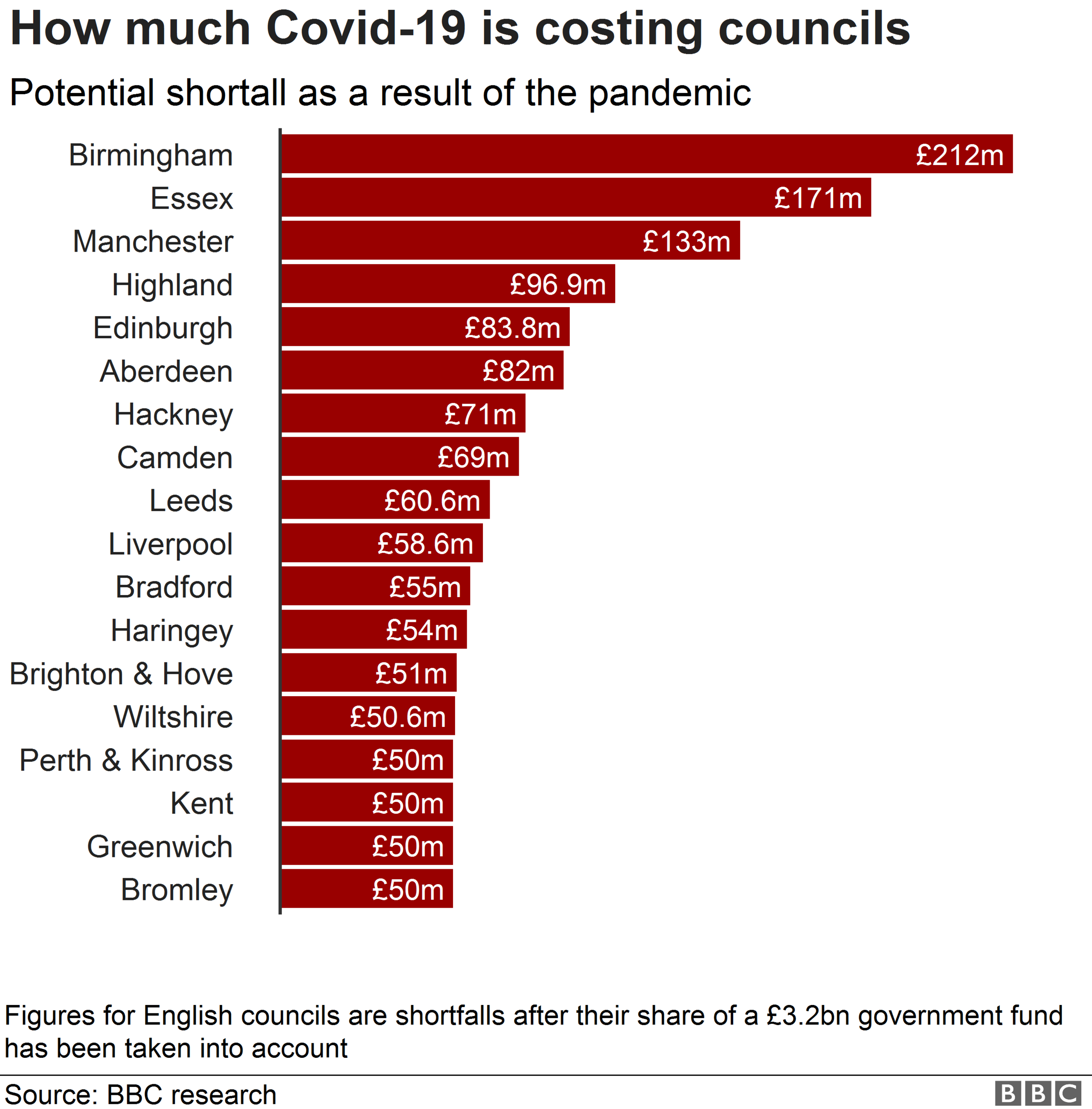
About 230,000 people live in the Highlands, even though the area covers just under half the landmass of Scotland and a large swathe of coastal area.
But the BBC research suggests that financially it has been hit harder than anywhere else in the UK as a result of the virus pandemic.
The region's main sources of income - tourist car parks, docking fees and the sale of marine fuel at all of its 100 harbours - have been reduced to "zero overnight" as a result of the pandemic.
A single car park in Inverness previously earned £200,000 a month. In April it made £75.
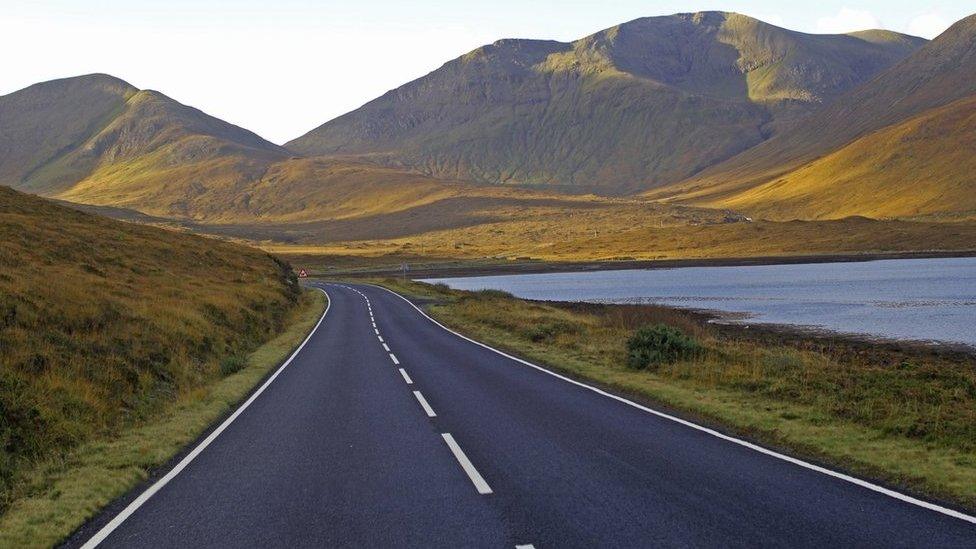
The economy of the Highlands, and also Perth and Kinross, is closely linked to tourism
Its £55m of lost income has been coupled with the cost of around £40m of extra expenditure caring for an ageing population through the crisis, most of whom are spread out among hundreds of communities.
Carers regularly travel 30 to 40 miles to visit a single patient in a day.
But redundancies in adult social care will follow if the council cannot get funding to cover its shortfall.
Mr Foster said: "Because so much of our budget is tied up in staffing, in order to balance we would need to reduce headcount.
"The decisions we would have to make would be pretty damaging."
'Increasing unemployment'
Alasdair Christie, chairman of the recovery board set up to steer Highland Council out of the crisis, said the full-scale of Covid-19's effect on the authority was still to be known.
He said: "At the moment we really don't know what's going to happen to us. The longer term impacts of this could be even worse.
"I think, because of the nature of our economy, we could see increasing unemployment and even more demand for our services."
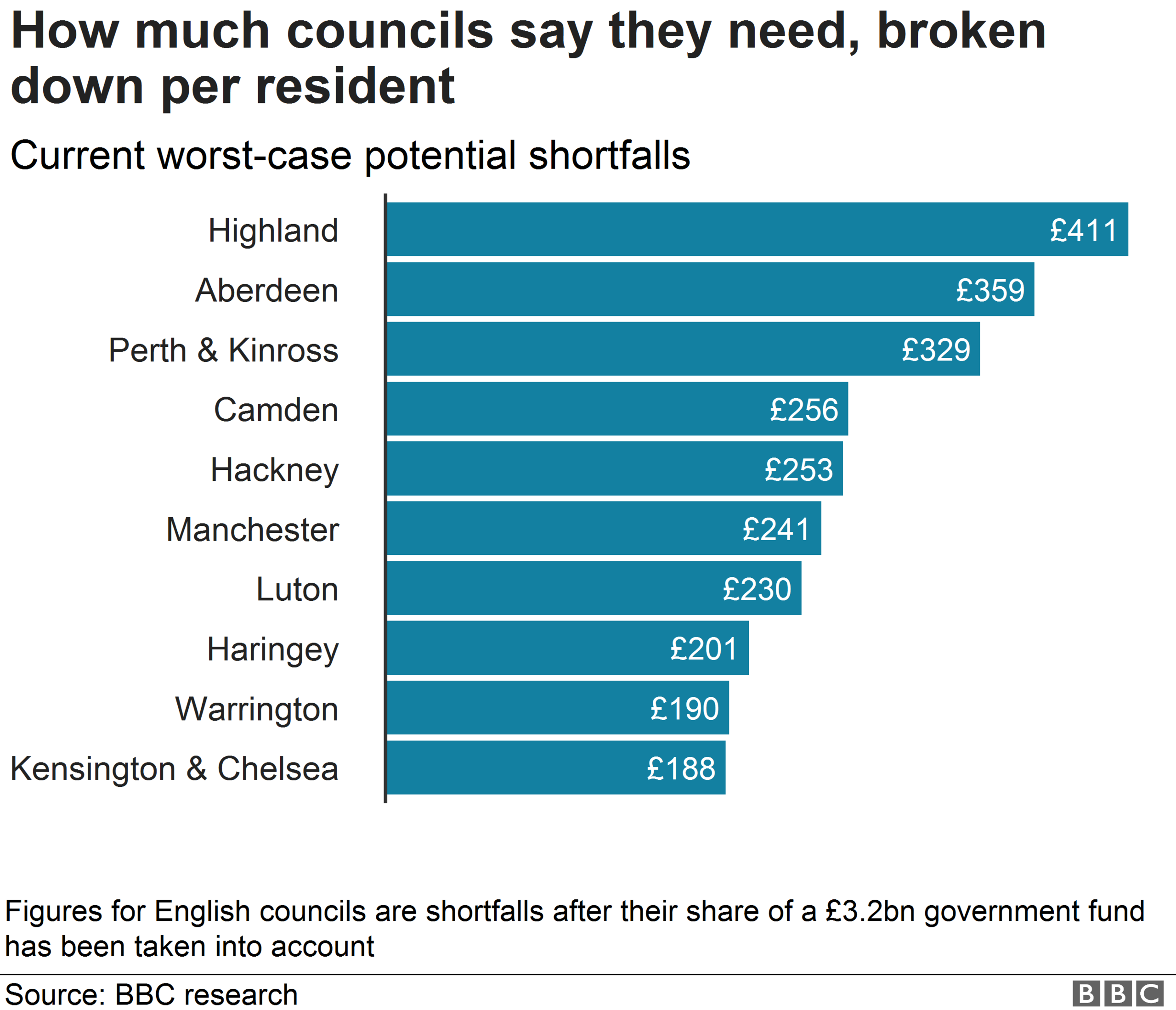
Councils have received funding from the Scottish government to help them, and many are continuing their dialogue with the government about obtaining further support.
Aberdeen City Council, which said its worst-case scenario shortfall was based on the lockdown "persisting throughout the financial year", has received two tranches of funding so far totalling £8m.
'Positive dialogue'
City of Edinburgh Council said it was working on narrowing its budget gap, but said it will require additional financial support to do that.
Council leader Adam McVey said: "A big part of our response to date has been built on positive dialogue with government, and we're continuing to work with ministers on the funding Edinburgh will need going forward."
He said the council's number one priority through the crisis had been to support the city's communities and most vulnerable residents.
Mr McVey added: "We've worked hard to protect our staff as far as possible, to introduce emergency measures to help those in need, and to maintain our key services for the people of Edinburgh.
"This will not change as we work through the coming weeks and months or as we adapt our services for the longer-term."
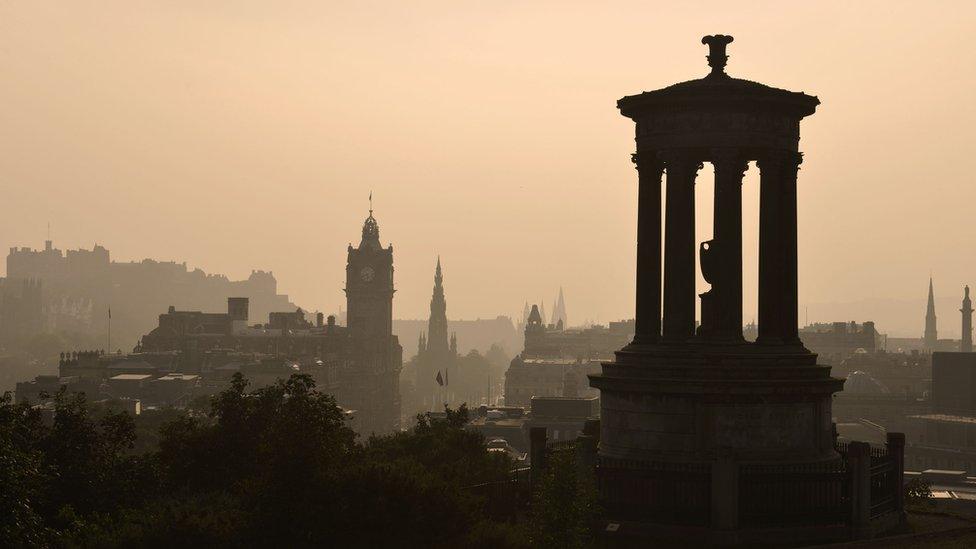
City of Edinburgh Council said its priority through the crisis was supporting its communities and city's most vulnerable people
Perth and Kinross Council said it had incurred "significant new and additional costs" as a result of the pandemic, while experiencing a loss of income across a number of areas.
It said unemployment figures for the region showed a "staggering" 94% increase during April, highlighting the high proportion of jobs related to the hospitality and tourism sectors.
Chief executive Karen Reid said: "The coronavirus pandemic has had an enormous human cost. It is also the greatest challenge public services have faced.
"But people across Perth and Kinross have shown remarkable resilience in the face of such adversity."
Ms Reid said even after lockdown restrictions were lifted entirely there would still be work to do to "build back an even better council for residents, staff, businesses and visitors".
The Scottish government said funding support for local authorities had included weekly advanced payments. Councils received an additional £150m in May, £255m in June and will receive £50m in July.
A spokesman said: "We will continue to work with (local authorities body) Cosla and local authorities, as well as pressing the UK government for urgent additional funding and flexibility for our partners in local government."

More about this story
The Shared Data Unit makes data journalism available to news organisations across the media industry, as part of a partnership between the BBC and the News Media Association. This data was gathered with help from the Local Democracy Reporting Service.
For more information on methodology, click here, external. For the full dataset, click here, external. Read more about the Local News Partnerships here.
Reporting team: Alex Homer, Anna Khoo, Daniel Wainwright, Paul Lynch, Peter Sherlock and Rob England